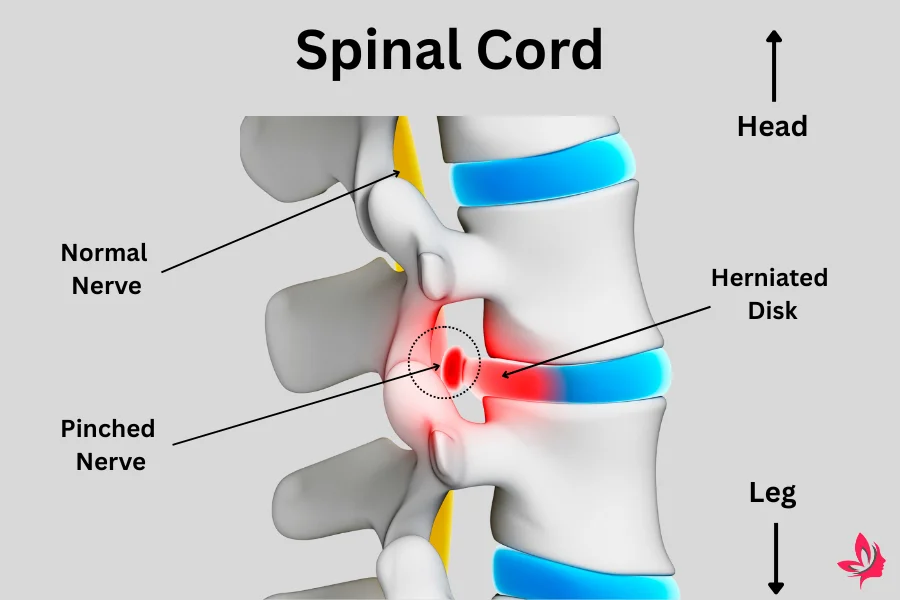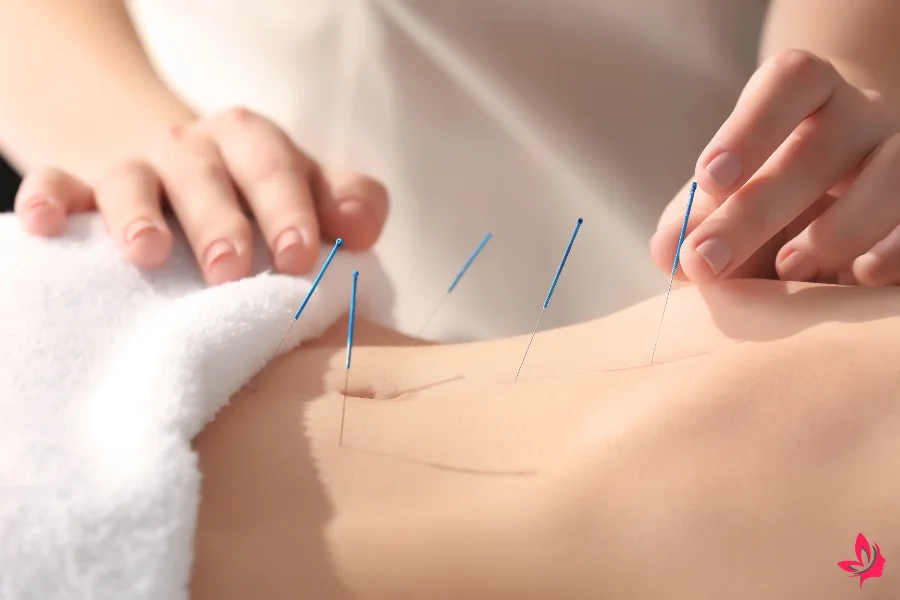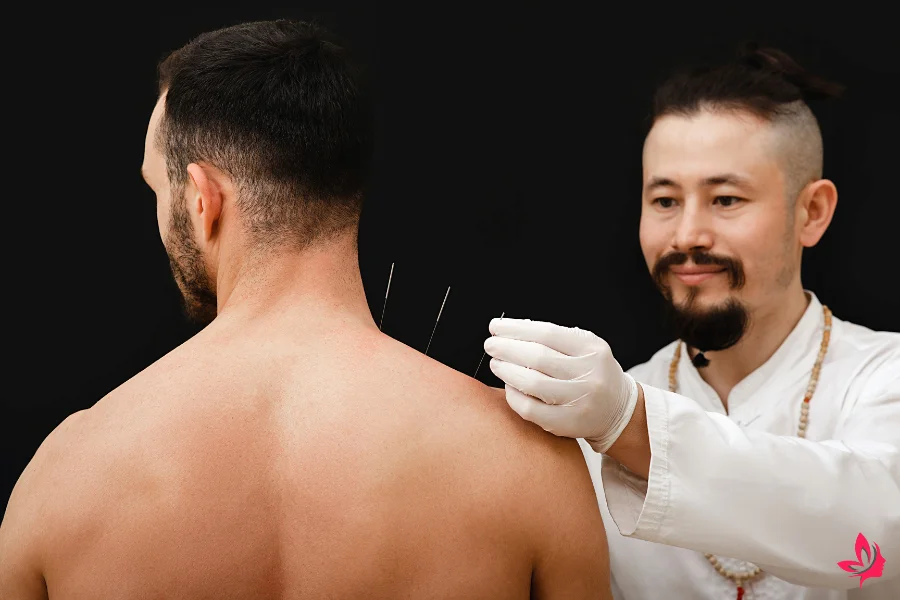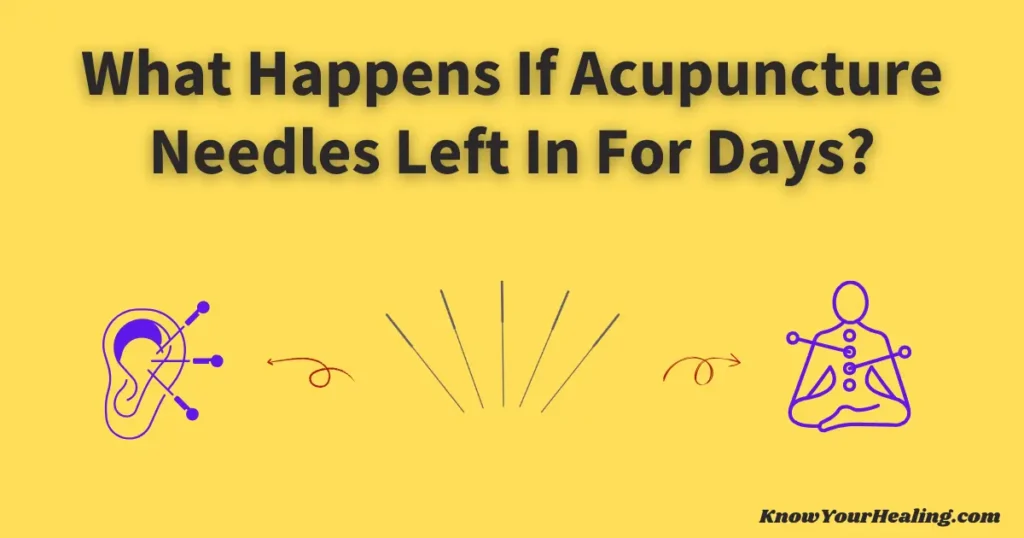Acupuncture for pinched nerve issues is gaining recognition for its potential to alleviate pain and discomfort.
Experiencing a pinched nerve can cause significant distress, affecting daily activities and quality of life.
Acupuncture offers a natural approach to stimulate nerve function and promote healing, providing an alternative to traditional pain management methods.
Acupuncture involves inserting thin needles at specific points on the body to relieve nerve pressure.
This practice is believed to enhance circulation and release tension, improving nerve function.
Several clinics suggest acupuncture as a treatment for pinched nerve pain, combining both traditional and modern techniques to target the issue effectively.
Various studies have explored the effectiveness of acupuncture in managing pain, with mixed results.
Some research indicates that acupuncture can ease pain, while others show its effectiveness is similar to placebo treatments.
Despite the variability in outcomes, many individuals report relief after acupuncture sessions.
How Acupuncture Works for Pinched Nerve Relief

Acupuncture for pinched nerve relief involves targeting specific points on the body to improve nerve function and reduce pain.
These techniques can help manage conditions such as sciatica pain and carpal tunnel syndrome, providing relief and improving quality of life.
The Role of Traditional Chinese Medicine in Acupuncture
Traditional Chinese Medicine (TCM) views acupuncture as a method to balance the flow of energy, or qi, within the body.
This holistic approach aims to address the root cause of the problem rather than just symptoms.
By inserting tiny needles at specific acupuncture points, practitioners believe they can unblock and redirect energy pathways that contribute to nerve pain or other ailments.
TCM emphasizes a balance between the yin and yang energies.
When these energies are not in harmony, it can lead to ailments such as pinched nerves.
Acupuncture therapy seeks to restore this balance, effectively treating those experiencing nerve symptoms.
The Science Behind Acupuncture Treatment
Scientific studies suggest that acupuncture may relieve pain by stimulating the release of endorphins and improving blood circulation.
This process may block pain signals traveling through affected nerves and relieve chronic pain sufferers.
Tiny needles used in acupuncture are thought to interact with nerve pathways and central nervous system elements, affecting how pain is perceived.
While research continues, evidence suggests acupuncture might be beneficial for conditions like peripheral neuropathy and acute pain.
It is often viewed as a complementary practice to traditional treatments.
The Process of an Acupuncture Session
An acupuncture session typically begins with a detailed assessment of a patient’s medical history and symptoms of a pinched nerve.
Experienced acupuncturists then develop a personalized treatment plan, choosing specific needs and points to target.
Sterile needles, much thinner than those used in other medical treatments, are inserted into the skin to stimulate nerve pathways.
The needles usually remain in place for 20 to 40 minutes, during which patients might experience sensations like tingling or mild pressure.
These sessions aim to relieve nerve pain, improve daily activities, and achieve long-term relief.
Benefits of Acupuncture for Nerve Pain

Acupuncture for pinched nerve pain offers various benefits, including immediate relief and sustained improvements.
It also provides a comprehensive approach when compared to traditional treatments. These benefits apply to many types of nerve pain.
Immediate Relief and Long-term Benefits
Acupuncture treatment often provides immediate relief for nerve pain by improving blood flow and stimulating specific acupuncture points with thin needles.
This process can reduce pain signals and muscle tension, offering both short-term and lasting relief.
Many patients notice significant improvements after just a few sessions.
Acupuncture targets the root cause of the problem, serving as a holistic approach to enhancing daily activities and quality of life.
Acupuncture vs. Traditional Treatments
Acupuncture therapy is an effective treatment that differs from traditional treatments such as medication or surgery.
Traditional Chinese Medicine focuses on restoring the flow of energy, known as qi, to affected nerves.
While physical therapy and pain medication manage symptoms, acupuncture promotes healing through natural methods.
Patients with conditions such as sciatica or cervical spine issues often find acupuncture to be the best option for pain management due to its personalized treatment plans.
Treating Various Types of Nerve Pain
Acupuncture is beneficial for various nerve pain types, including low back pain, carpal tunnel syndrome, and peripheral neuropathy.
By using tiny needles, it addresses both acute pain and chronic conditions.
Acupuncture care particularly targets nerve pathways and affected regions, relieving common symptoms such as sharp pain and burning sensations.
As a versatile alternative, acupuncture effectively supports normal function and improves the range of motion in areas such as the spinal cord and cervical spine.
Personalized Treatment Plans for Pinched Nerve

Acupuncture for pinched nerve issues can greatly enhance relief outcomes when tailored to individual needs.
Developing a Personalized Treatment Plan
An acupuncture treatment for a pinched nerve starts with a detailed evaluation of an individual’s medical history and symptoms.
By identifying the root of the problem, practitioners can target specific acupuncture points that address nerve pain and related issues.
A personalized treatment plan considers factors such as affected nerves, nerve pathways, and energy flow in the body to ensure effective treatment outcomes.
This approach aims to optimize the quality of life by relieving pain and improving the normal function of the affected area through tailored interventions.
Integrating Acupuncture with Other Therapies
Combining acupuncture with traditional treatments like physical therapy can offer significant improvements in managing nerve pain.
Acupuncture sessions often complement other therapies by enhancing blood flow and reducing muscle tension, aiding in conditions such as sciatica pain or carpal tunnel syndrome.
For some, integrating acupuncture therapy with massage techniques or trigger point therapy can address symptoms of a pinched nerve, ensuring comprehensive care.
This holistic approach accommodates specific needs, providing an alternative treatment pathway supporting immediate relief and long-term recovery goals.
Addressing Common Symptoms with Acupuncture
Common symptoms of a pinched nerve, such as sharp pain, burning sensation, or muscle weakness, can be effectively managed through acupuncture care.
By inserting thin needles at specific points, practitioners aim to reduce pain signals and promote the release of endorphins, which serve as natural pain relief.
Acupuncture also enhances blood circulation, which can help alleviate chronic pain and muscle tension.
Treatments focus on restoring the body’s balance and relieving pressure on affected nerves, offering a non-invasive approach that minimizes side effects often associated with other medical treatment options.
Addressing Specific Conditions with Acupuncture

Acupuncture for pinched nerves can target various specific conditions. It offers pain relief and supports healing in both acute and chronic cases. By stimulating particular points, acupuncture can enhance blood flow and improve nerve function.
Acupuncture for Spinal Cord and Lower Back Issues
Acupuncture treatment for spinal cord and lower back issues, such as those caused by a pinched nerve, involves inserting thin needles into specific acupuncture points along the spine.
This helps ease muscle tension and reduces inflammation, improving blood flow and energy flow in the area.
Conditions like low back pain, herniated discs, and sciatica pain may see significant improvements through acupuncture, which serves as an effective treatment option without the side effects often associated with traditional treatments.
Acupuncture therapy also complements physical therapy by providing additional relief and support.
Treating Peripheral Neuropathy with Acupuncture
For those suffering from peripheral neuropathy, acupuncture offers a promising alternative to conventional treatments.
This condition, often marked by symptoms like burning sensations, sharp pain, and muscle weakness, can significantly impact daily activities.
Acupuncture enhances blood circulation, reduces pain signals, and promotes natural healing in the affected nerves.
Using sterile needles, an experienced acupuncturist targets specific points to alleviate nerve pain and manage chronic pain.
This holistic approach can result in long-term relief and improved quality of life, making acupuncture a viable treatment option for those dealing with the discomfort of peripheral neuropathy.
Acupuncture for Chronic Conditions
Acupuncture is widely recognized for its role in managing chronic conditions, including chronic neck and back pain.
Acupuncture care focuses on individual needs and aims to release endorphins, balance the flow of qi, and restore normal function to the affected area.
Using a personalized treatment plan, acupuncture for pinched nerve conditions may involve a series of acupuncture sessions.
This approach addresses the problem’s root cause and can relieve common symptoms like nerve pain, muscle tension, and limited range of motion.
Such treatments are particularly beneficial for improving daily life and reducing dependency on pain medication.
The Holistic Approach of Acupuncture

Acupuncture for pinched nerve treatment offers a comprehensive method to address pain. It enhances energy flow and improves daily functioning, providing a valuable alternative to traditional therapies.
The Flow of Energy and Pain Management
Acupuncture therapy targets specific acupuncture points to promote the flow of energy, known as qi, throughout the body.
This approach is rooted in traditional Chinese medicine.
By inserting thin needles at these points, acupuncture stimulates pain relief and reduces symptoms of a pinched nerve.
For example, acupuncture can alleviate nerve pain by influencing how the central nervous system processes pain signals.
This natural healing method can also enhance blood circulation, aiding in the long-term relief of chronic pain and reduced muscle tension.
The Impact of Acupuncture on Daily Life
For individuals experiencing nerve pain, acupuncture treatment can significantly improve daily activities.
It has been noted that acupuncture helps reduce pain linked to conditions like carpal tunnel syndrome and lower back issues.
Addressing the root cause of the problem, such as muscle weakness or poor posture, can help patients observe significant improvements in their quality of life.
Acupuncture can also complement physical therapy, offering a personalized treatment plan to suit specific needs.
The Role of Experienced Acupuncturists
The expertise of an experienced acupuncturist is crucial to achieving effective treatment outcomes.
They can assess the affected area, consider the patient’s medical history, and develop a personalized approach.
Through meticulous application, sterile needles stimulate specific points to relieve pain and enhance normal function.
This becomes particularly important in severe cases where nerve damage is present.
An acupuncture session can be part of an alternative treatment plan, providing relief without the side effects commonly associated with pain medication.
Final Thoughts
Acupuncture for pinched nerves has gained attention as a possible remedy for alleviating discomfort. This ancient practice is believed to improve blood circulation and effectively relieve pain.
By targeting specific points in the body, acupuncture may stimulate nerve function and promote healing.
Many choose acupuncture for its holistic approach. This method aims to treat the symptoms and addresses the underlying causes.
It’s essential to consult with a certified practitioner to ensure effective treatment.
While some studies highlight acupuncture’s potential benefits for nerve-related issues, others call for more research to understand its safety and efficiency.
Individuals considering this option should discuss it with their healthcare providers to see if it suits them.
Key Takeaways:
- Acupuncture could help improve blood flow and reduce pain.
- It targets specific body points to stimulate nerve function.
- Consultation with a certified acupuncturist is essential.
- Research on acupuncture’s effectiveness continues.
Frequently Asked Questions
Acupuncture for pinched nerve pain can offer an effective way to relieve discomfort and promote healing.
However, acupuncture differs from other treatments, such as chiropractic care, in terms of effectiveness and time required for relief. Here are some common questions about acupuncture for pinched nerves.
Can acupuncture help with pinched nerves?
Yes, acupuncture can alleviate pain and discomfort from pinched nerves, promoting healing and improving nerve function. It stimulates blood flow and reduces inflammation, helping to relieve symptoms naturally.
What is better for a pinched nerve, acupuncture or chiropractor?
Both acupuncture and chiropractic care can help with pinched nerve pain. Acupuncture focuses on enhancing blood flow and reducing inflammation, while a chiropractor may adjust the spine to relieve pressure on the nerve. The choice depends on individual needs and preferences.
What is the fastest way to fix a pinched nerve?
Resting and avoiding activities that aggravate the nerves can help. Additionally, treatments like acupuncture can speed recovery by reducing pain and promoting circulation. It is recommended that you consult a healthcare professional for a tailored plan.
How many acupuncture sessions for a pinched nerve?
The number of acupuncture sessions needed varies. Some people may feel improvement after a few sessions, while others require more to achieve significant relief. This depends on the severity of the nerve compression and individual response to treatment.
How long does it take for acupuncture to work for nerve pain?
Some individuals notice relief shortly after the first session, though effects can vary. Consistent treatment over several weeks is usually necessary to achieve noticeable and lasting results. The timeline depends on the specific condition and personal response to acupuncture.
What heals a pinched nerve?
Healing a pinched nerve often involves rest, physical therapy, and interventions such as acupuncture. These approaches aim to relieve pressure on the nerve, reduce inflammation, and promote natural healing processes. A healthcare provider can recommend the best course of action.
Can acupuncture heal nerve damage?
Acupuncture can help relieve pain and support nerve function, but whether it fully heals nerve damage depends on the cause and extent of the damage. It is best used as part of a comprehensive treatment plan.
Should you massage out a pinched nerve?
Massage may help relieve tension and improve circulation around the affected area, but caution is necessary. Incorrect massage techniques can worsen the condition, so it’s advisable to consult a professional.
Can a chiropractor fix a pinched nerve?
Chiropractors can often help alleviate pain from a pinched nerve through spinal adjustments. These adjustments aim to reduce pressure on the nerve and improve spinal alignment, which can lead to increased comfort.
Does acupuncture relax nerves?
Acupuncture is known to promote relaxation and alleviate stress.
It helps calm the nervous system by stimulating certain points on the body, making it a beneficial treatment for relaxing nerves and reducing tension.




